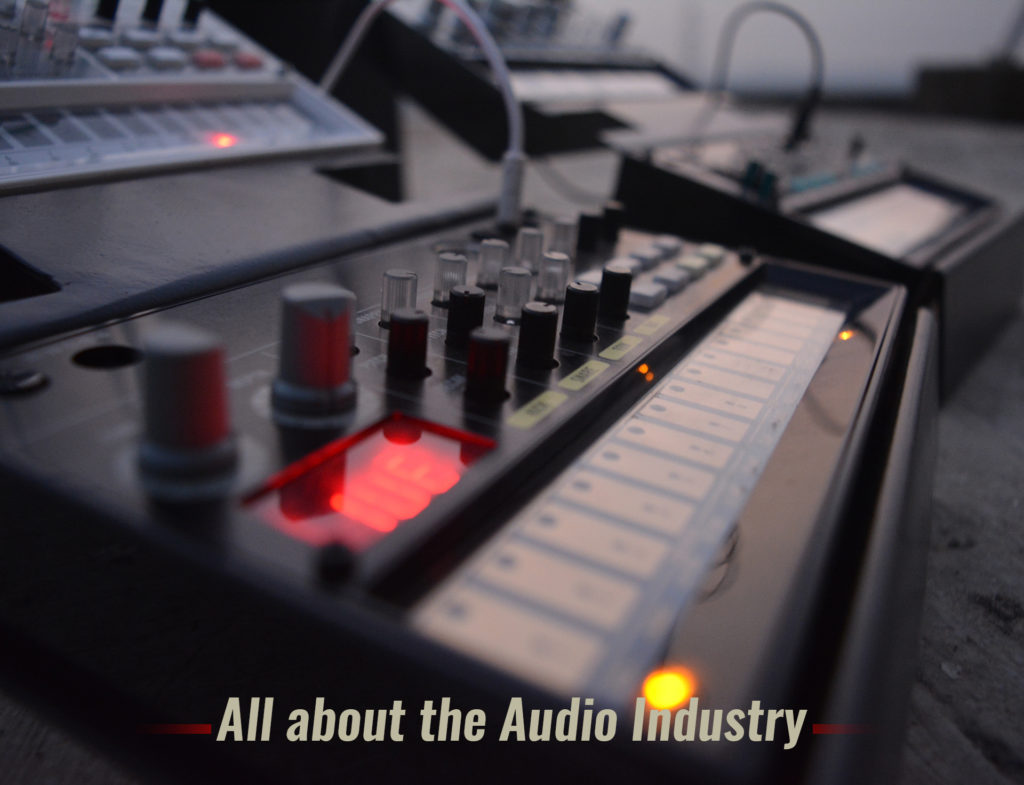All about the Audio Industry

To put it in common parlance, audio engineering is all about capturing sound and playing it back to audiences. For instance, if you are at a music concert or whether you are watching a movie at home, the sound that is emitted by the singer or the actor is technically captured and reached to you by the works of an audio engineer.
Why become an audio engineer
Become an Audio Engineer to explore the very interesting intricacies of this field that acts as the base of many other popular industries. Your job as an audio engineer is to essentially work on the sound that gets picked by a microphone. The same then gets converted into electrical components which can be directed by you to targeted audiences and in what form they finally get to hear it when the sound actually reaches their ears. As an audio engineer, you also get to record the various sounds so that they can be played at chosen times in the future and in chosen places by people.
Different stages of music production
As an audio engineer today, your work will mostly revolve around recording musical pieces in such a way that the performance of the artiste gets correctly captured and at the end of the performance, the performer/organizer receives a well-recorded piece of their work. Enroll in Audio Engineering in Bangalore to know about the different components of the industry such as Pre-Mixing, Mixing, Mastering, and Recording
- Pre-Mixing
At the Pre-Mixing stage, the audio engineer assists the performers to set up their gear and instruments, tuning them and placing microphones in such a way that the sounds can be captured most effectively. Placement of microphones is crucial for an engineer as each of them does a recording of their own track which can then be modified later by the audio engineer to give a particular ring to it. They are then placed and adjusted as per his discretion in the subsequent stages.
- Mixing
This is where the creative acumen of the engineer can be judged by the use of various techniques and tools to put together a perfectly synchronized work output. In other words, this step involves the adjustment and combination of each individual track to together form a compact stereo audio file.
- Mastering
Once the mixing stage is complete, each stereo file is then mastered by the audio engineer. These two stages of mixing and mastering are often confused and overlapped by a layman. However, there is a subtle difference between the two. At the mastering stage, the various songs are then polished by the engineer so as to give a clear form and body to the entire album.
While in the mixing stage, the mixing engineer puts together the final pieces of a so-called audio puzzle to make a complete “picture”, at the mastering stage the same picture is given its final polish, sheen and smoothen its proverbial edges, so as to give it a level of consistency that can be maintained across various devices on which the piece gets played.
Scope of growth in the Sound Engineering domain
Coherent Sound Engineering Courses in Bangalore are becoming more and more popular not only because of the demand of such professionals in the market but also the very interesting work they get to be involved with. This is a big part of the audio industry wherein capturing of live sounds flawlessly is key. In essence, you are not only required to only be proficient with the technical aspects but also be in close touch with your creative impulses as this is a field, where mastery of both can lead you great heights.
Come and be a part of us at Audiolife where we can train, guide and handhold you into the depths of this very fulfilling industry. Learn the nuances from our team of experts and brilliant mentors in the audio industry and carve your own route to success.
